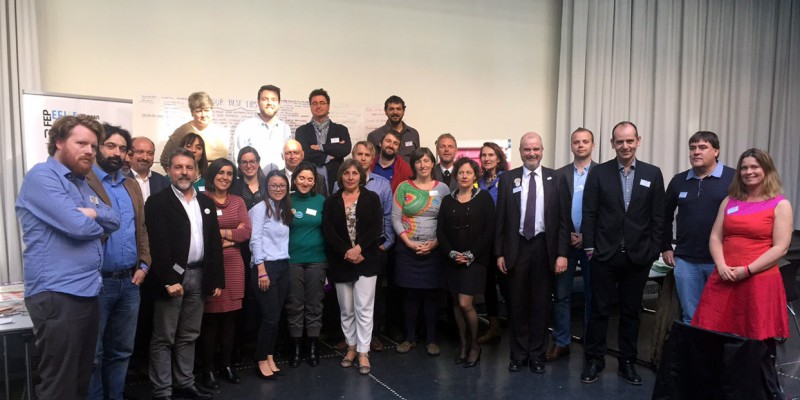Membership makes unions stronger

Top 10 tips on recruitment and serving membership
Membership makes unions stronger. How do unions reach out and engage youth while developing services that cater for the needs of a wide range of membership? This was the theme of the EFJ workshop on “Let’s organise, invest in youth and services” attended by 30 union leaders and recruitment officers from the EFJ affiliates on 10 – 11 May in Copenhagen, Denmark.
Participants raised the need to adapt recruitment strategies and services to respond to the changing landscape and labour market in journalism and media.
Here are the top 10 tips and best practices shared by participants:
- Invest in recruitment – The strength of the union is built on its membership. Some EFJ affiliates have dedicated recruitment officers and even business director to develop strategies and recruit new members. Develop a recruitment pack that tell potential members your union and why they should join it. Use young journalists to recruit young journalists.
- Think big, start small – Not many unions have the resources to have a dedicated recruitment officer. But recruitment is a long-term strategy. Developing a strategy does not cost money. Unions can start with small steps by prioritising recruitment in their worker, getting volunteers and seeking funding.
- Make it easy to join the union – Avoid long administrative procedures and make it simple for potential members to join your union. Use your recruitment pack!
- Make union a fun play to be – Defending the professional rights of journalists and promoting solidarity among journalists are serious issues but the ways to promote these issues can be “fun”. The key to gather support and mobilise members for action is to make the issue relevant for everyone regardless of how you promote it. Here is an example from the Swedish Trade Union Confederation (TCO), watch the promotional video #likeaswede.
- Bottom-up approach – Give youth a voice in the union. Unions should encourage young journalists and journalism students to get involved in union affairs. Some unions also give the democratic (equal voting right for union elections) right to journalism students so that they can make influence union policy. Having young members in the board is the best way to reach out young journalists.
- Services, services, services – Professional and relevant services for members are key to attract new members and maintain existing members. The EFJ affiliates developed a wide variety of services ranging from legal advice to discounted insurance to cater for the need of different members.
- Investigate members’ needs – While services are important, knowing their needs is crucial in developing services that are useful and relevant to them. Unions must investigate and ask their members what services they need.
- Data is key – One way to investigate the needs of members is to start a database about your membership. If your union already has a membership database, start looking at those data and it will help you map the needs of members. Update the database regularly so that you are in touch with the needs of your members. If you do not have any membership data, start one today!
- Professionalism and credibility – Build a professional and modern image for the union that provides relevant services and represent all types of journalists from all ages.
- Set journalism free – The changing media landscape has allowed the proliferation of various forms of journalism. The notion of journalism is constantly evolving. It’s fruitless to assign a particular definition to journalism and journalists. Let journalists themselves define who they are and what journalism is.
Presentation made during the workshop
Tips on recruitment, Louise Theils, Danish Journalists’ Union
(more to be uploaded)
Highlights of the workshop in Storify
The workshop is funded by the European Commission (DG Employment) and hosted by the Danish Journalists’ Union (DJ) in Copenhagen, Denmark as part of the two-year EFJ project on “Rights and Jobs in Journalism”. A handbook containing best practices on recruitment will be produced at the end of the project in 2016. The next workshop on labour rights will be held in Toledo, Spain on 24 September.
If you have any inquiry about the workshop or the project, please contact Yuk Lan Wong (Yuklan.wong@ifj.org; +32 2 2352 226).











